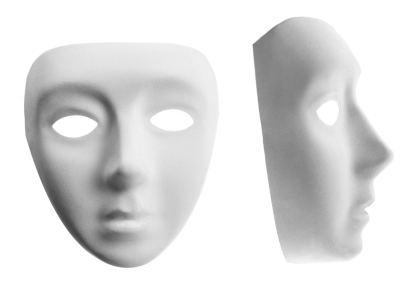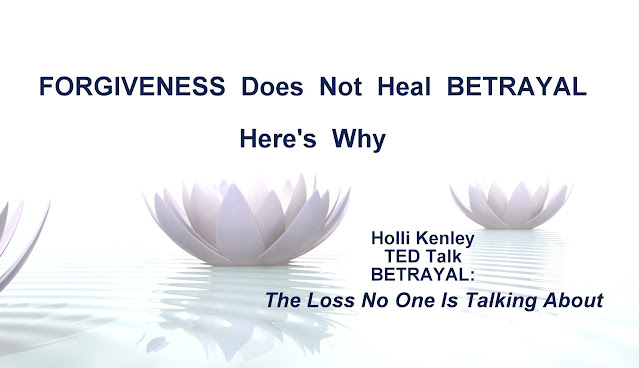Let's Talk About Relapse - Day 14 - The Mask of Detachment
Today, we will address the final mask of relapse - The Mask of Detachment. In the two previous blogs, we discussed The Mask of Denial (a mask of self-inflicted lies) and The Mask of Disguise (a mask of the false self). We learned about the roles they play in furthering our decline into relapse. However, by developing a new awareness of them, we embraced healing strategies that will aid us in our early recognition of them and in their timely removal. Let's move on to the third mask - Detachment.
Sophia has been in unhealthy relationships most of her life. However, her last boyfriend was extremely abusive. At 31 years old, Sophia finally found the courage to leave her toxic relationship where she found refuge in a women's shelter. After several months in the shelter, she felt ready to return home, where she was rooming with a healthy girl friend. Six months later, Sophia started getting calls from Henry, her ex-boyfriend. Missing him and listening to his promises that 'everything would be different this time', Sophia put of the Mask of Denial, listening to his lies and to her own. Against the advice of her roommate and other friends, Sophia started seeing Henry. Every now and then, Sophia can see his anger flare up; however, Sophia puts on the Mask of Disguise, pretending that everything is ok and falling back into her submissive false self. When Sophia's roommate finally confronts her about sneaking around with Henry, Sophia threatens to move out. As she does this, Sophia puts on the final mask - Detachment - removing and isolating herself from those who do not support her choices, from those who speak the truth to her.
Let's look at another example.
Jack is recently divorced, in his early 40's. For the past year, he has been 'living the good life' - partying, dating tons of girls, hanging out with his old guy friends from college - just doing everything and anything to deal with his inner pain and feelings of failure. But lately, his choices have been catching up with him. He has a second DUI, missed several important appointments at work, and has started lying to his ex-wife, kids, and friends about what he has been doing. One of the most important aspects of Jack's life and where he credits much of his recovery has been his faith. Because of his embarrassment and shame, he has walked away from that as well. Although Jack remembers his troubles in high school and college with a wild lifestyle, he has been wearing the Masks of Denial and Disguise for some time, and now he puts on The Mask of Detachment - staying away from anyone or anything that reminds him of what he has become. Wearing The Mask of Detachment, Jack distances himself further from facing, hearing, and breathing in his healing truths.
In order to deal with The Mask of Detachment, answer the following questions. Be brutally honest as you take this self-inventory.
When we find ourselves wanting to camouflage our thoughts, behaviors and feelings behind The Mask of Detachment - to isolate and insulate ourselves from facing our truths - we will implement the following 5 step battle plan:
1. Recognize your failures, mistakes, or weaknesses! Name them!
2. Reach out for help! Turn to trusted individuals who have invested in you! They are there for you!
You are not alone!
3. Re-surrender to your higher power, or belief system, or healing ritual that has been part of your
recovering program or practice.
4. Release your shame, embarrassment, guilt, self-blame.
5. Reject the Masks of Denial and Disguise that will be working overtime to draw you away from
truth! Repeat #'s 1-4, again and again!
As with the removal of all the masks, this too is hard work, but the work is worth it! Free yourself now! And feel yourself...
Homework: First, answer the questions above. Take your time. Be strong and be honest. Then, practice the 5 step battle plan
 |
| The Mask of Detachment is dangerous. |
As I have mentioned previously, the three masks typically appear in the order that I have discussed them- Denial, Disguise, and then Detachment. However, they can present themselves almost simultaneously or perhaps move fluidly from one to the other, depending on the relapse episode or the kind of regression into unhealthy patterns of thinking, behaving or feeling. Let's take a look at a couple of examples. (The names and people I am referencing are fictitious.)
Sophia has been in unhealthy relationships most of her life. However, her last boyfriend was extremely abusive. At 31 years old, Sophia finally found the courage to leave her toxic relationship where she found refuge in a women's shelter. After several months in the shelter, she felt ready to return home, where she was rooming with a healthy girl friend. Six months later, Sophia started getting calls from Henry, her ex-boyfriend. Missing him and listening to his promises that 'everything would be different this time', Sophia put of the Mask of Denial, listening to his lies and to her own. Against the advice of her roommate and other friends, Sophia started seeing Henry. Every now and then, Sophia can see his anger flare up; however, Sophia puts on the Mask of Disguise, pretending that everything is ok and falling back into her submissive false self. When Sophia's roommate finally confronts her about sneaking around with Henry, Sophia threatens to move out. As she does this, Sophia puts on the final mask - Detachment - removing and isolating herself from those who do not support her choices, from those who speak the truth to her.
The Mask of Detachment is incredibly dangerous because it fuels and feeds our relapse by cutting off any outside healthy influences or support systems. We begin to suffocate in our denial and disguise as our lifeline to truth is removed.
Let's look at another example.
 |
| Hiding from those who speak the truth. |
Jack is recently divorced, in his early 40's. For the past year, he has been 'living the good life' - partying, dating tons of girls, hanging out with his old guy friends from college - just doing everything and anything to deal with his inner pain and feelings of failure. But lately, his choices have been catching up with him. He has a second DUI, missed several important appointments at work, and has started lying to his ex-wife, kids, and friends about what he has been doing. One of the most important aspects of Jack's life and where he credits much of his recovery has been his faith. Because of his embarrassment and shame, he has walked away from that as well. Although Jack remembers his troubles in high school and college with a wild lifestyle, he has been wearing the Masks of Denial and Disguise for some time, and now he puts on The Mask of Detachment - staying away from anyone or anything that reminds him of what he has become. Wearing The Mask of Detachment, Jack distances himself further from facing, hearing, and breathing in his healing truths.
The Mask of Detachment is The Mask of Suffocation
At this stage of relapse, most often an intervention on some level is required. Or, there are times when the consequences of relapse dictate imposed or self-imposed treatment. As I have stated before, for the purposes of this blog, it is my intention to provide knowledge about The Mask of Detachment so that we can recognize it for what it is, understand its role in relapse, and again, remove it more readily and in a more timely way, helping to shorten our stay in relapse. Or better yet, not adorn this mask at all!In order to deal with The Mask of Detachment, answer the following questions. Be brutally honest as you take this self-inventory.
- As soon as you start slipping into relapse or regression, what healthy or healing practices or realities do you detach from? These can be physical, spiritual, familial, professional. etc. List them all.
- Whom and what do you avoid? Why?
- What else do you do to isolate yourself from your truths?
By recognizing our detaching behaviors, by admitting their role in our relapse, and by owning their negative impact upon us, we are better armed against this deadly mask that shields us from coming into contact with truth - and with our return to recovery!
1. Recognize your failures, mistakes, or weaknesses! Name them!
2. Reach out for help! Turn to trusted individuals who have invested in you! They are there for you!
You are not alone!
3. Re-surrender to your higher power, or belief system, or healing ritual that has been part of your
recovering program or practice.
4. Release your shame, embarrassment, guilt, self-blame.
5. Reject the Masks of Denial and Disguise that will be working overtime to draw you away from
truth! Repeat #'s 1-4, again and again!
As with the removal of all the masks, this too is hard work, but the work is worth it! Free yourself now! And feel yourself...
Listen to the Voices of Truth and Live in Them!
.jpg) |
| Stay close to the voices of trusted individuals. |



Comments
Post a Comment